MercoPress. South Atlantic News Agency
Stories for January 2013
-
Friday, January 18th 2013 - 06:02 UTC
Venezuela wants best of relations with the US based on ‘mutual absolute respect’

Vice-president Nicolas Maduro said on Thursday that Venezuela is willing to have the ‘best possible relations’ with the US government as long as these are based on respect and equality. He added that it was President Hugo Chavez who instructed the newly named Foreign minister Elias Jaua on the issue.
-
Friday, January 18th 2013 - 00:20 UTC
Dengue fastest growing tropical disease; represents ‘pandemic threat’, says WHO

Dengue is the world’s fastest-spreading tropical disease and represents a “pandemic threat,” infecting an estimated 50 million people across all continents, the World Health Organization (WHO) said this week.
-
Thursday, January 17th 2013 - 23:45 UTC
European Parliament calls for speeding EU/Mercosur trade negotiations

The European Parliament regretted that negotiations for an association agreement between the European Union and Mercosur remain stalled or have hardly advanced since they officially resumed two years ago.
-
Thursday, January 17th 2013 - 22:02 UTC
Uruguay’s growth estimates for this year, 3.86%, according to private estimates
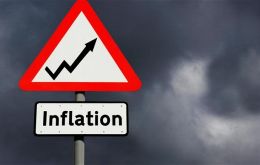
Private analysts lowered their forecasts for Uruguay’s GDP growth this year from an average of 4% in December to 3.86%, according to the latest monthly survey on economic expectations released by the Central Bank. Expectations for January ranged between 3.2% and 4%.
-
Thursday, January 17th 2013 - 20:27 UTC
IMF ‘definitive’ assessment of Argentine inflation and GDP stats in February
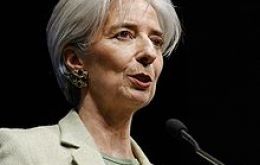
IMF Managing Director Christine Lagarde confirmed to the Argentine media that next February first the fund will be assessing her critical report on Argentine statistics, which could lead to sanctions for the country.
-
Thursday, January 17th 2013 - 16:49 UTC
Uruguay poised to grow 4% this year; Argentina and Brazil, 3.4%, says World Bank

Uruguay’s economy is poised to grow 4% this year and in 2014, which is above the region’s average, according to the World Bank’s latest Global Economic Prospects issued this week. However Uruguay will be ranked twelfth in the growth ranking of Latinamerica this year but ahead of Brazil and Argentina with 3.4%.
-
Thursday, January 17th 2013 - 16:47 UTC
Brazil expects to tame inflation with the currency and energy rate cuts
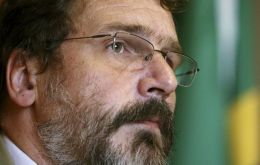
The Brazilian currency and energy rate cuts will help tame inflation this year, allowing the Brazilian central bank to keep interest rates at a record low even as growth accelerates, said Treasury Secretary Arno Augustin.
-
Thursday, January 17th 2013 - 15:38 UTC
Atlantic countries concerned with UK presence in Falklands; call for talks with Argentina
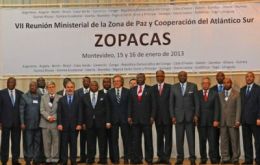
Twenty one countries from South America and Africa strongly supported their commitment to keep the South Atlantic free of arms of massive destruction and expressed concern over the British military presence in the Falklands/Malvinas, which are claimed by Argentina.
-
Thursday, January 17th 2013 - 14:04 UTC
Despite inflation risks Brazil keeps interest rates at record low, 7.25%

The Brazilian central bank kept its benchmark interest rate at a record low for the second straight meeting, 7.25%, despite admitting inflation was a short term risk and economic recovery less intense than expected.
-
Thursday, January 17th 2013 - 08:26 UTC
World Bank says global economy remains fragile: forecasts GDP growth at 2.4%
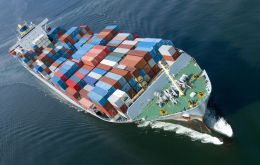
Four years after the onset of the global financial crisis, the worst appears to be over. However, the global economy remains fragile, as high-income countries continue to suffer from volatility and slow growth, says the World Bank’s latest Global Economic Prospects, issued on Wednesday.
